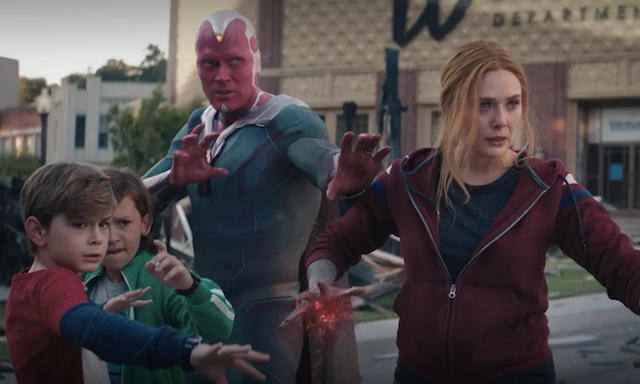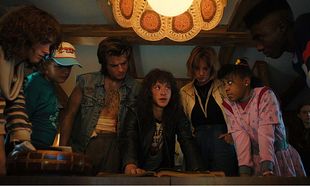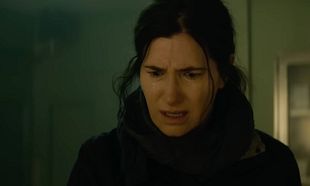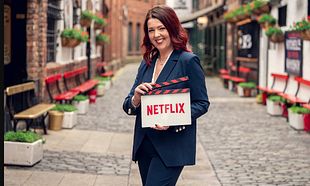The series finale of 'WandaVision' brings to an end the closest thing Marvel has ever gotten to experimental ideas.
From the truly out-there moments of the opening episodes, through the emotionally wrought flashback episode, and Kathryn Hahn's scene-stealing performance throughout, 'WandaVision' had a lot going for it. It's fitting almost that the weakest episode in the series, because it exposes something that's inherent not only in Marvel movies, but in the idea of week-to-week TV rather than streaming TV.
Marvel movies have, with the exception of 'Infinity War' and 'Endgame', suffered from weak endings. It makes sense, to a degree. Comics are by their nature supposed to continue on and on. You can't really get a sense of finality and closure if you know that the same characters are going to appear again and again, not to mention the fact that the whole concept is that it can continue indefinitely, with new characters replacing old ones and so forth.
'WandaVision' acts more like a bridge than a coda for both characters. Vision's fate remains uncertain - White Vision jetted off after the one created by Wanda touched his brain - and in that ending, we see Wanda revealed as the Scarlet Witch in all her glory, with an end credits revealing her off in the mountains, seemingly having gained the ability to split herself into two - one as Wanda, the other as the Scarlet Witch.
Had this been dropped in as one entire season the way other streaming platforms had done, odds are moments like 'Agatha All Along' and the reveal of Evan Peters wouldn't have captured the newscycle the way they did. On the one hand, it's a canny move to go week-to-week because it keeps everyone talking about the show and theorising - ourselves included - as to what's going to happen next week.
The problem with that strategy is that when you give people enough time to think up some ideas, they're eventually going to either guess the whole thing out or they're going to come up with some better ideas. Everyone was convinced that Doctor Strange was going to turn in that episode, and he didn't. Everyone was convinced Mephisto was behind it all. We even guessed that Agatha Harkness was a psychologist and the whole thing came about like 'Shutter Island'. Even Paul Bettany admitted that some of the ideas he heard online - Patrick Stewart appearing as Professor X, the aforementioned Doctor Strange - might have been a neater idea than what we got.
'WandaVision', had it been released in one drop, probably would have a more cohesive feeling by the end. It's not that it wasn't wrapped up neatly and left ready for 'Doctor Strange In The Multiverse of Madness', but rather that it wouldn't have allowed people to get so invested in a much bigger ending than the one they got.
Expectations always outstrip reality. For a show that has its main character bend reality to her will so that she can have everything she wants, it seems fittingly ironic that reality gives way in the end here when we see that 'WandaVision', as entertaining as it was, didn't quite stick the landing - much the same way that all Marvel movies do.
Now, so do their TV shows.









































































